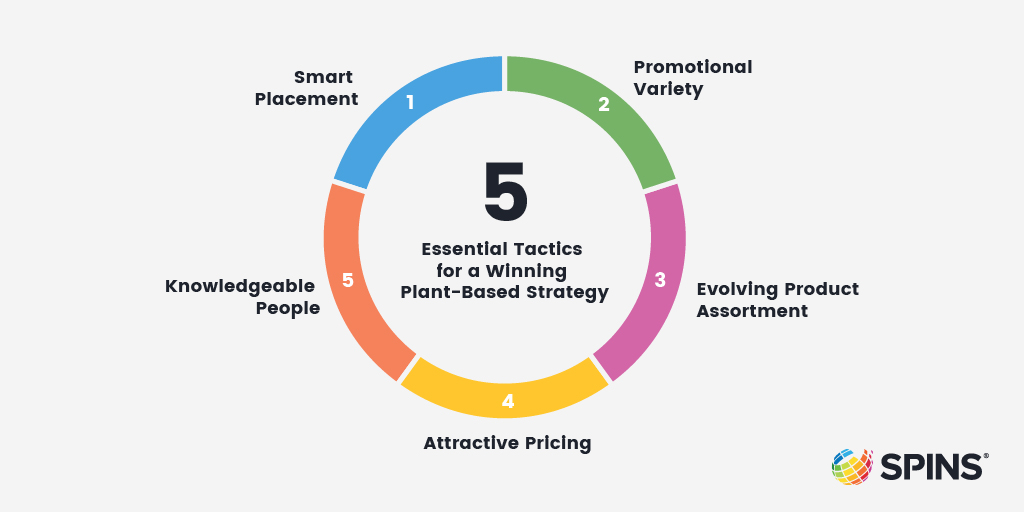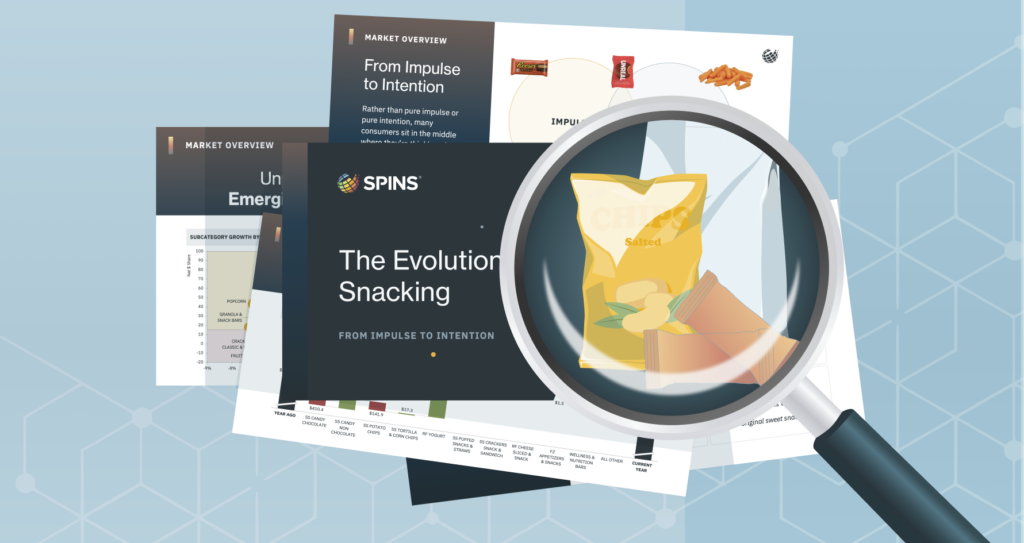Introduction
Plant-based food choices have been on the rise for years and the momentum accelerated in the earlier part of 2020 thanks to pandemic shopping. The variety of plant-based options has never been larger. Shelves and cases are filled with choices for meats (hamburgers, chicken patties, sausages), milks, and yogurts as well as vitamins and supplements. In the months since the initial stock-up, plant-based sales are still going strong and proving that this isn’t a trend—it’s part of shoppers’ new routine.
Retailers might be wondering how to make the most of this emerging category right now and position themselves for success in the future. Luckily, it’s easier than you think. Today, you can take simple steps to leverage the rising popularity of plant-based products and continue to adjust and adapt as you establish a long-term strategy to show shoppers you are their go-to retailer for all items plant-based.
Here are 5 essential components for a plant-based strategy that every retailer can use:

1. Smart Placement
Grouping plant-based alternatives alongside their traditional counterparts is a simple way to get your inventory in front of more shoppers, particularly those who didn’t come into the store looking for a new product but are open to trying one. As you know, the right placement is also a great opportunity to grab customers during promotions, whether or not you’re offering a reduced price.
You can also inspire meal-based solutions by placing plant-based meat options next to cheeses or other items that pair well together. As with any emerging product, you can help shoppers see the possibilities and broaden their view of plant-based items in their meals.
2. Promotional Variety
Getting a shopper’s attention is half the battle to attracting new customers, and promotions are one of the best ways to make it happen. With the quickly expanding variety of plant-based options, your customers might not even realize they’re missing out on an entire grocery category. You can even appeal to budget-savvy shoppers by highlighting value-pack sizes and private label options that they might not have known existed. Whether your promotions include price reductions, in-store samples, or placement, you have a variety of ways to get in front of shoppers.
3. Evolving Product Assortment
Don’t let your inventory grow stale; bring in fresh products that show how varied the category is. As we’ve mentioned, plant-based shelves are getting crowded, and shoppers (and you) have more options and innovation to choose from than ever before. In addition to carrying the tried-and-true staples your customers keep coming back for, you can look for those next hot items and prove your commitment to be the retailer plant-based shoppers rely on.
4. Attractive Pricing
Finding the right price point might not seem like a groundbreaking idea, but its importance cannot be overstated in a growing market where new products are constantly entering the market and the audience is rapidly expanding. Whereas plant-based options were once strictly the domain of specialty outlets, they can be found in almost every retailer today. Don’t give shoppers a reason to look elsewhere. If you can hold base pricing consistent and competitive on the staple plant-based products that keep bringing shoppers back, you can establish a long-term relationship with your shoppers.
5. Knowledgeable People
The rise of plant-based diets and options provides a unique opportunity for retailers to connect with established and new shoppers. First, you have existing plant-based shoppers who know what’s available but need to know that you can provide what they are looking for: both the products and an understanding of the category. These shoppers are already spending on these items, but you need to prove that you deserve their dollars.
On the other end of the spectrum are shoppers who are new to the category and might not know what’s on the market or understand why plant-based alternatives are attractive. They need education.
The solution to attracting and retaining both audiences is an informed team. Educate your staff on the benefits of plant-based foods, the breadth of choices, how they fit into diets, and why customers are increasingly turning to them. If you can bring that personal touch to the shopping experience, you can become the resource that new and established customers need.
Right now, retailers have a chance to make their mark in an emerging category, expand their customer base, and build a foundation that will lead to continued growth. If you’re interested in how SPINS can help you become a leading retailer for plant-based products, contact us today.





